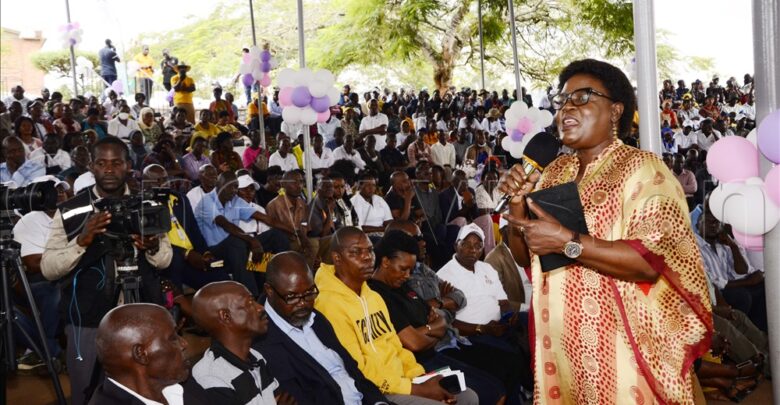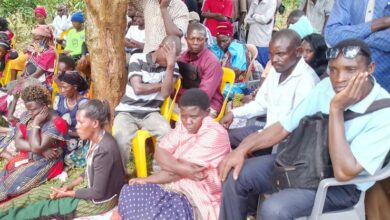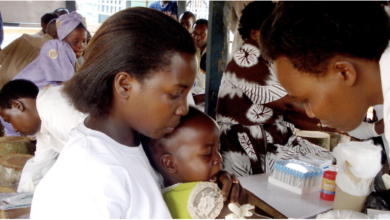EnvironmentLocal News
KCCA Introduces New Solid Waste Management Approach
KCCA Introduces New Solid Waste Management Approach

The Kampala Capital City Authority (KCCA) is preparing to implement a new waste management strategy that involves sorting garbage during the collection process to improve rubbish control across the city.
During a meeting at Kitante Primary School on August 29, 2024, KCCA executive director Dorothy Kisaka shared this initiative with over 1,000 smart city ambassadors and city division leaders.
The meeting aimed to educate participants on effective waste management practices in Kampala.
Kisaka said KCCA is shifting from merely collecting and dumping garbage to a more comprehensive approach to solid waste management.
Dorothy Kisaka, KCCA executive director interacts with garbage collection stakeholders during a meeting at Kitante Primary School in Kampala August, 29 2024.
She urged residents to begin sorting their waste at the source, whether in households, businesses, or institutions into three categories:
Biodegradable waste (organic matter), non-biodegradable items (such as plastics and polythene bags), and disposables (like glass, metals, and old electronics).
“We’ve been using one regime of collecting and dumping. But now let’s sort our garbage into three lots. The first one is biodegradable, organic food waste. Secondly, we have non-biodegradable items like polythene bags and plastic bottles. The third lot includes glass, metals, old phones, old radios, things that you want to dispose of,” Kisaka explained.
Kisaka emphasized that sorting waste at the household level would ease the workload for waste collectors and make recycling more efficient. She also highlighted the importance of using waste bins along roads instead of littering, reminding residents that littering is illegal.
“Organic material decomposes naturally, but it doesn’t break down properly when mixed with plastics and polythene. Households should sort their waste to make it easier for those converting waste into energy,” she said.
Smart city ambassadors
To support this initiative, Kisaka introduced the concept of “smart city ambassadors” in each of Kampala’s 857 villages. These volunteers will lead efforts to educate and mobilise residents about proper waste management.
She stressed that achieving a smart and clean city requires collective responsibility, starting at the grassroots level.
“There will be people to sensitise residents of the village. They will be mobilising meetings in the village to talk about solid waste management. It is a place where we shall take implements, the facilitation, or whatever they need so that the village is kept smart,” she noted.
Kisaka also urged landlords to play their part by maintaining and beautifying their properties, such as painting buildings and paving areas to reduce dust.
She commended the efforts of division chairpersons and coordinators in supporting the village ambassadors’ work across the city, reiterating that a clean and green Kampala starts with individual action.
Temporary dumpsites
KCCA has secured two temporary dumpsites. Katikolo site in Mukono and Menvu in Nansana to manage garbage disposal.
“Right now, we are dumping in Katikolo, and we are very grateful for the leadership there. We hope that our next solution will work faster so that we can move away. The distance is far, and fuel is expensive,” Kisaka noted.
Kisaka also mentioned that for a more substantial garbage landfill, KCCA needs a plot of land not less than 150 acres, located no more than 30 kilometers from the city, away from main roads, and distant from residential areas.
“Kiteezi landfill will not be used for the meantime; we are working on cleaning the area, but as of now, we are not thinking of using it any time soon,” she said.




